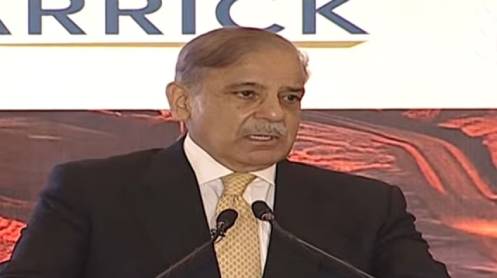Emphasizes the need for affordable electricity for agriculture and industry growth.
Criticizes politicization of electricity pricing, citing inefficiencies and corruption in the FBR and energy sector.
Requests China to reprofile Pakistan’s debt to secure IMF bailout.
ISLAMABAD: In response to Jamaat-i-Islami’s (JI) 48-hour ultimatum to reduce electricity prices, Prime Minister Shehbaz Sharif announced on Friday that the government is committed to providing relief to energy consumers. He urged against politicizing the issue, stating that doing so disrespects the public.
During a cabinet meeting, the Prime Minister highlighted that reducing electricity prices is crucial for enhancing export competitiveness and expanding the agriculture and industrial sectors. He also criticized the misuse of the electricity tariff issue for political gain.
Addressing inefficiencies and corruption in the Federal Bureau of Revenue (FBR) and the energy sector, PM Shehbaz stressed the need for reforms to put Pakistan on the right path. He recalled the PML-N government’s success in addressing the 20-hour daily load-shedding crisis by installing efficient LNG plants with China’s support.
The Prime Minister announced a 10-day extension for paying electricity bills and a reduction in industrial electricity tariffs by Rs8.5 per unit, supported by a Rs170 billion subsidy. He acknowledged the burden on the salaried class and mentioned a Rs50 billion subsidy for consumers using up to 200 units per month. Efforts to curb electricity theft and resolve issues with independent power producers are ongoing, although these challenges cannot be resolved overnight.
In a significant move, PM Shehbaz informed the cabinet about his letter to China requesting debt reprofiling to secure IMF’s $7 billion bailout. He highlighted China’s interest in using local Thar coal to reduce import costs and save $1 billion in foreign exchange.
The cabinet also approved a Memorandum of Understanding (MoU) on Trade Promotion Cooperation with China to enhance bilateral trade, focusing on key sectors such as smartphones, new energy vehicles, textiles, and pharmaceuticals. Additionally, legislation for the National University of Modern Languages and the establishment of King Hammad University of Nursing and Associated Medical Sciences, in cooperation with Bahrain, were approved to meet modern educational challenges.
Story by Syed Irfan Raza





